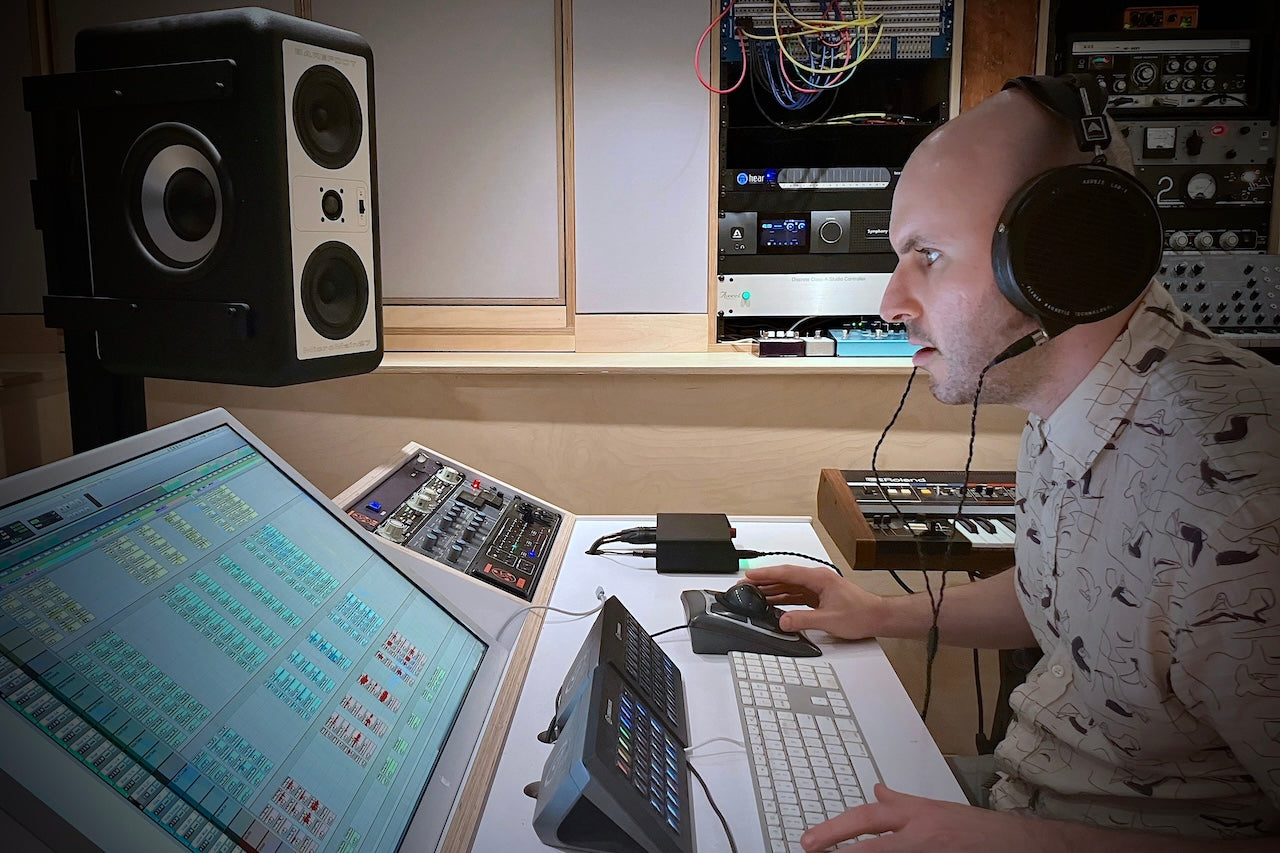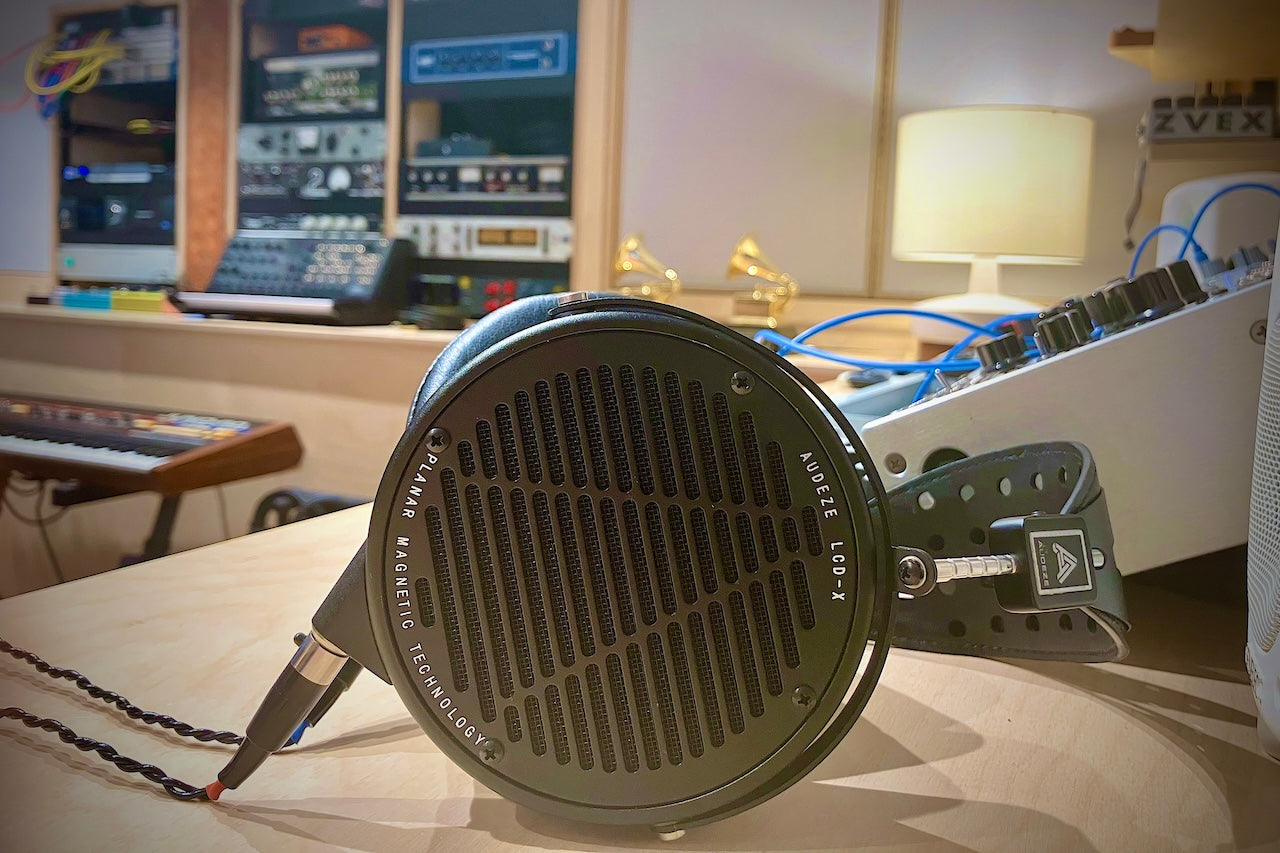
Audeze Artists 2025 Grammy Winners

The Audeze Artists of Metropolis Studios

Andrew Scheps has spent over 35 years in the industry and is a 3x Grammy award winning Mixer/Producer/Engineer/Label Owner/Software Developer whose credits are ridiculously long and star-studded.

Lee Ranaldo, musician, visual artist and writer, co-founded Sonic Youth in 1981. He played in Glenn Branca’s early ensembles and symphonies, 1980-1984, and has been active both in New York and internationally for over forty years as a composer, performer, collaborator and producer, also exhibiting visual art at galleries and museums worldwide, and publishing several books of journals, poetry, and writings on music.
April 02, 2024
Joseph Branciforte is a multi-instrumentalist, composer, record producer, and Grammy & Latin Grammy award-winning recording engineer based north of New York City. He is the founder of the experimental record label greyfade, which focuses on process-based composition, acoustic & electronic minimalism, and alternative tuning systems. When not busy working on his own music (and musical collaborations with artists such as vocalist Theo Bleckmann and electronic musician Taylor Deupree), he can be found at his greyfade studio, working on albums for some of the most respected names in jazz, classical, and creative music.

I’ve worked on hundreds of records at this point, so it’s a bit difficult to pick favorites! As a musician, my duo albums with vocalist Theo Bleckmann, LP1 and LP2, come to mind, as they combine a lot of my different interests: electronic music, improvisation, composition, and sound design. I’ve also just finished producing and arranging an album for Taylor Deupree called Sti.ll, re-imagining his 2002 electronic album Stil. using an all acoustic instrumentation: cello, vibraphone, clarinet, guitar, and percussion. As a recording engineer, getting to work with artists such as Ben Monder, Bill Frisell, Tim Berne, Chick Corea, and Nels Cline have definitely been among the many highlights.
I play many different roles — from producer to engineer to arranger — but I’d say the majority of my day-to-day work these days is mixing and mastering albums at my studio. I’ve always really enjoyed crafting a unique soundworld for each project, and having my own space and my own gear allows me the flexibility to really dig into the details and creative possibilities. I also do a lot of mobile recording, capturing performances at halls, clubs, and spaces around New York. This is actually how I first got started as an engineer back in the early 2010s, so I have a lot of experience dealing with the high-stakes / high-stress situation of it all. It’s something I’ve come to embrace, and many of my favorite records I’ve had the chance to work on were recorded live in front of an audience.
I started as a drummer, taking lessons and playing in bands from around the age of 10. I later developed an interest in music theory and began studying piano, composition, and improvisation during high school. I went on to study electronic music at Berklee College of Music. Growing up, my friends and I were all pretty open-minded about the music we were checking out — jazz, classical, prog, electronic, experimental, metal, singer-songwriter, ambient. All those interests have carried over to this day and inform all the music I work on.
I’ve been fortunate to have the opportunity to work with many of my musical influences and heroes at this point. There are days when I feel like the luckiest music fan in the world, getting to hear master musicians performing at their best. I am constantly drawing inspiration from watching all those artists work— their focus, their process, their sound — it humbles me and makes me work that much harder on my own music whenever I get back to it.
Probably one of the biggest frustrations for me in the studio is the disconnect between creative intention and the technical process needed to achieve it. Coming from a background in improvisation, my ideal has always been the immediacy of playing an instrument, where idea and execution are often simultaneous. In the studio, there can sometimes be a waiting period — seconds, minutes, or hours — while mics are set up, cables plugged in, DAW booted, tracks labeled, project folders created, sample rates changed over, patchbays wired, etcetera. There’s so much that needs to happen technically to realize that idea, that by the time everything’s in place, you’ve lost all sense of inspiration. I’ve begun to approach this problem by dividing the task into distinct processes that happen at different times. On days when the studio isn’t booked, I deal with the technical stuff. I think of it like practicing an instrument: what are the things I want to be able to do quickly during a session? I’ll work through things like digital routing, file management, patching, aux returns, headphone mixes, key commands — and deal with each of those pretty comprehensively. I’ve started coding my own macros using an app called Soundflow, so I can perform complex tasks with a single button press. I feel like this work has really paid off over the last few years and has allowed me to stay much more present creatively during a session. It’s much easier to focus on the music at hand when you’re not thinking about the 45 steps you need to take before you hit record!
It depends heavily on the project. Some albums call for a very purist analog chain, some projects need a bunch of plugins and automation, and others some combination of the two. Some of the analog gear that I’m using a lot these days is my metal knob Neve 33609, the Chandler RS124 compressor, and the Benson Studio Tallbird Spring Reverb. I also love using guitar pedals and Eurorack modular processing while mixing… there’s so much interesting gear being made in both those formats.
I’ve been using my Audeze LCD-X headphones as a final check on both mixes and masters. I couldn’t be happier with the perspective they provide me at the end of the process. I have a set of Barefoot speakers as the main monitoring here at greyfade studio, but there’s something about the LCD-X that allows me to hear mixes in a completely new way every time I put them on. Clients also love listening to mixes on them. Almost every day I have someone here saying, “Wow, what are these headphones? They sound incredible!”
